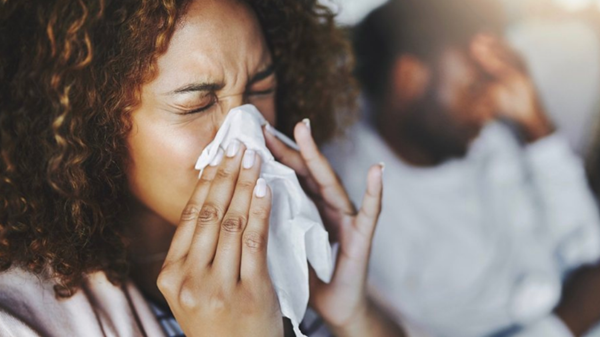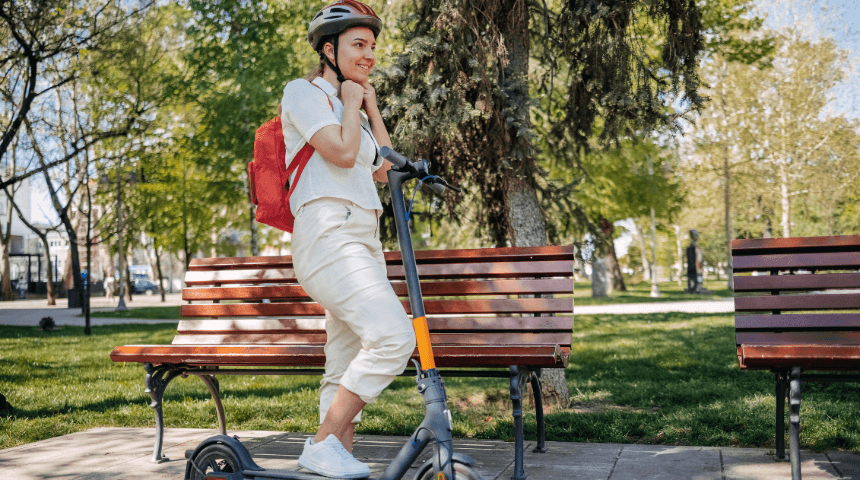Why Pneumonia Vaccine Is as Important as Flu Shot
If you’ve had your annual flu shot and are up to date on COVID vaccines, congratulations!
But there’s another important way to protect yourself from serious disease: getting vaccinated against pneumonia.
Pneumonia is an infection of the lungs and one of the leading causes of adult hospitalizations in the United States. Very young children and people 65 or older are especially vulnerable to pneumonia. In all, nearly 50,000 people die each year in the United States from pneumonia.
For older people who are relatively healthy, the beauty of the pneumonia vaccine is that — unlike the annual influenza vaccine — you may only need to get the shot just once in your lifetime to significantly reduce your chances of getting very ill or dying from pneumonia.
What Is Pneumonia?
Pneumonia is an infection that causes your lungs to fill with fluid. That can make breathing more difficult and can result in less oxygen in your bloodstream. Untreated pneumonia victims can die from a variety of causes, including respiratory and heart failure.
Pneumonia can be a viral, bacterial or fungal infection, and you can get it in a variety of ways:
- Bacterial pneumonia frequently occurs after getting the flu, which is one of the reasons why a flu vaccine is important. Even a common cold can lead to this type of pneumonia.
- Viral pneumonia also can result from colds or flu, although COVID is becoming a more frequent cause.
- Fungal pneumonia can sometimes occur when bird droppings (including poultry) become aerosolized and are inhaled.
Pneumonia symptoms can range from severe to mild enough that you may not think anything about it (thus the term, “walking pneumonia").
Symptoms of pneumonia include:
- A cough that produces thick phlegm
- Low energy and fatigue
- Fever and chills
- Shortness of breath
- Chest pain that’s heightened when coughing
- Nausea and vomiting
Who’s at Risk?
As with many diseases, young children and older people are at the highest risk from pneumonia, as are people with underlying medical conditions. Here’s who should get the vaccine:
- Children younger than 5. They are more susceptible to infection and their immune systems aren’t fully developed. Worldwide, pneumonia is the leading cause of death for children under 5, claiming the lives of some 700,000 young ones.
- Adults over age 65. Older people generally have weaker immune systems because of aging, plus they’re more likely to have underlying heart and lung conditions.
- People with medical conditions that weaken their immune systems. This includes asthma, cancer, chronic obstructive pulmonary disease or heart disease. The same is true for people with weakened immune systems from HIV or organ transplants.
- People being treated in hospitals or living in care facilities. This group tends to be at higher risk if they get pneumonia, often because they’re already sick and less able to fight the infection.
- Smokers. This includers smokers of all ages because of their higher risk for lung disease.
Prevention Through Vaccination
Several pneumonia vaccines are approved for use. Some are just a single shot, while others involve multiple injections. You should consult with your doctor about what’s best for you or your child.
These vaccines are very safe, though you might experience some discomfort around the injection site or some mild, short-lived symptoms, such as fever or chills. That’s OK; it means your immune system is responding to the vaccine.
As effective as pneumonia vaccines are, they don’t get used enough. Vaccination rates for older people are relatively high but too few younger adults at risk because of other medical conditions are taking advantage of this potentially life-saving vaccine.
Reduce Your Risk of the Flu
Getting the flu is no joke, so get a flu shot if you haven’t already done so. Schedule an appointment with your primary care doctor or visit a nearby urgent care center to discuss flu prevention or address flu symptoms.
Read More





